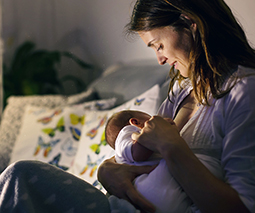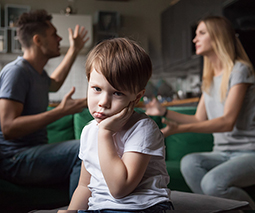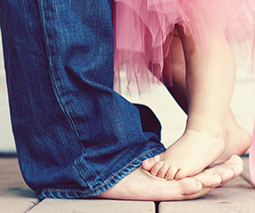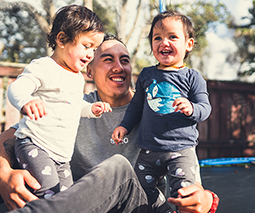It’s actually really important for your children to argue with each other
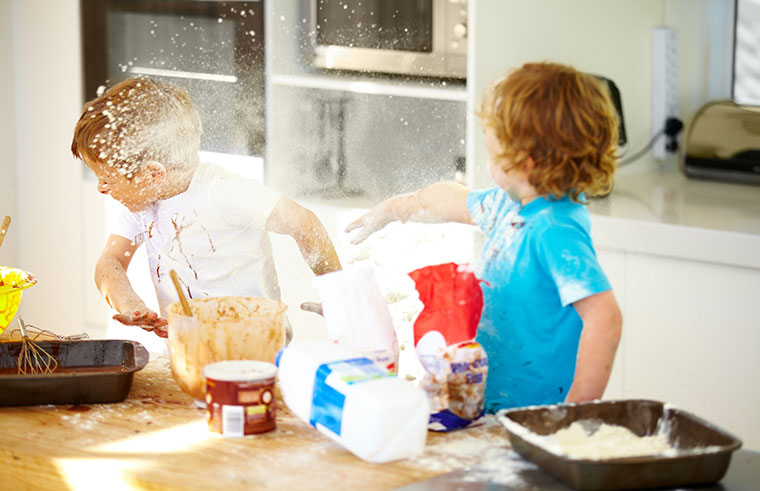
There’s no doubt about it, sibling fighting is frustrating for parents; however, according to the experts, it’s an incredibly important part of our children’s development.
My daughters get on pretty well most of the time, but like any siblings, they do squabble and fight over the most inconsequential things, like who sits where in the car and who holds mum’s right hand. And I have to say it drives me absolutely crazy.
The value of sibling squabbles
As frustrating as it is for parents, a lot of good can come from your little ones’ fights. According to Karen Young, child development expert and founder of popular website Hey Sigmund, fighting with siblings is a very rich and valuable part of growing up. “One of the best things that come out of it, is they learn skills that will boost their social-emotional intelligence,” she says. “It’s all part of their growth, and siblings are pretty unforgiving, so kids have to learn how to negotiate and how not to annoy the world and to get on with people.”
According to Karen, siblings put things right quickly and often rather harshly, so in these moments, our kids are learning how to communicate, negotiate and get their way. “They’re going to learn really quickly that if they go too far in getting their way, there’s going to be push-back on that, but eventually the idea is that they’ll learn that if they want something they have to give a bit as well.” she says.”It is frustrating with the squabbling, but they’re learning the whole time.”
Thinking about others
Sibling fighting is also important as it allows us to teach our kids empathy and compassion. According to Karen, there are opportunities to take them aside and ask questions like, “I really get that you’re frustrated and annoyed, but what do you think it’s like for her when you do that?” or, “If this was you, what would you need right now?”
“Sometimes they won’t have the answers,” says Karen. “But what we’re trying to do is give them the self-talk, and the self-talk that they have at home is what they use in the world; it’s all really messy when they’re little, but they’re developing these skills.”
Try to hold back
One of the hardest things for a parent to do is not to intervene and let siblings work it out for themselves. “We need to not fix it for them; the more we jump in, the more they’ll rely on that jumping in,” says Karen. “Of course, we have to jump in if someone’s about to get hurt, but if we can leave them to it for as long as we can so that we’re giving space for them to sort it out themselves.” Afterwards, according to Karen, is the time to have a conversation with your child about what she did, and whether it was the best way to get what she needed and what might have been a better approach.
What’s behind it?
Another frustration for parents is the silly reasons for squabbles – who sits where on the couch, who’s in whose space. However, there’s a lot more going on beneath the surface. “It’s actually not about the issue as much as it is about that the idea of power and feeling like they influence their environment,” she says. “The issue is them feeling powerful enough, or how do they get their needs met or how do they get their voice heard.”
When to step in
At some point, we might have to intervene, particularly if someone is getting hurt. “When it’s hurtful either physically or emotionally, as siblings can be so cruel because they know all the stuff about the other one, when it gets to that, that’s when I would step in and say that we need to talk about what’s going on here because that was just unkind,” says Karen. “The way to think of it is, ‘I don’t want you to grow into this person and think that the way to get what you need is by being this hurtful.’”
Keep calm
The other challenge for parents is to remain calm. “As soon as we get upset, they’ll catch that from us, and they’re blaming each other for getting in trouble, they’re blaming us, they’re turning on each other, and they’re turning on us,” says Karen. “The other thing is we can’t teach them anything when they’re exploding and when it’s all happening, so these conversations have to happen when everything’s calm. You need to separate them and have them do their own thing and then have the conversation.”

